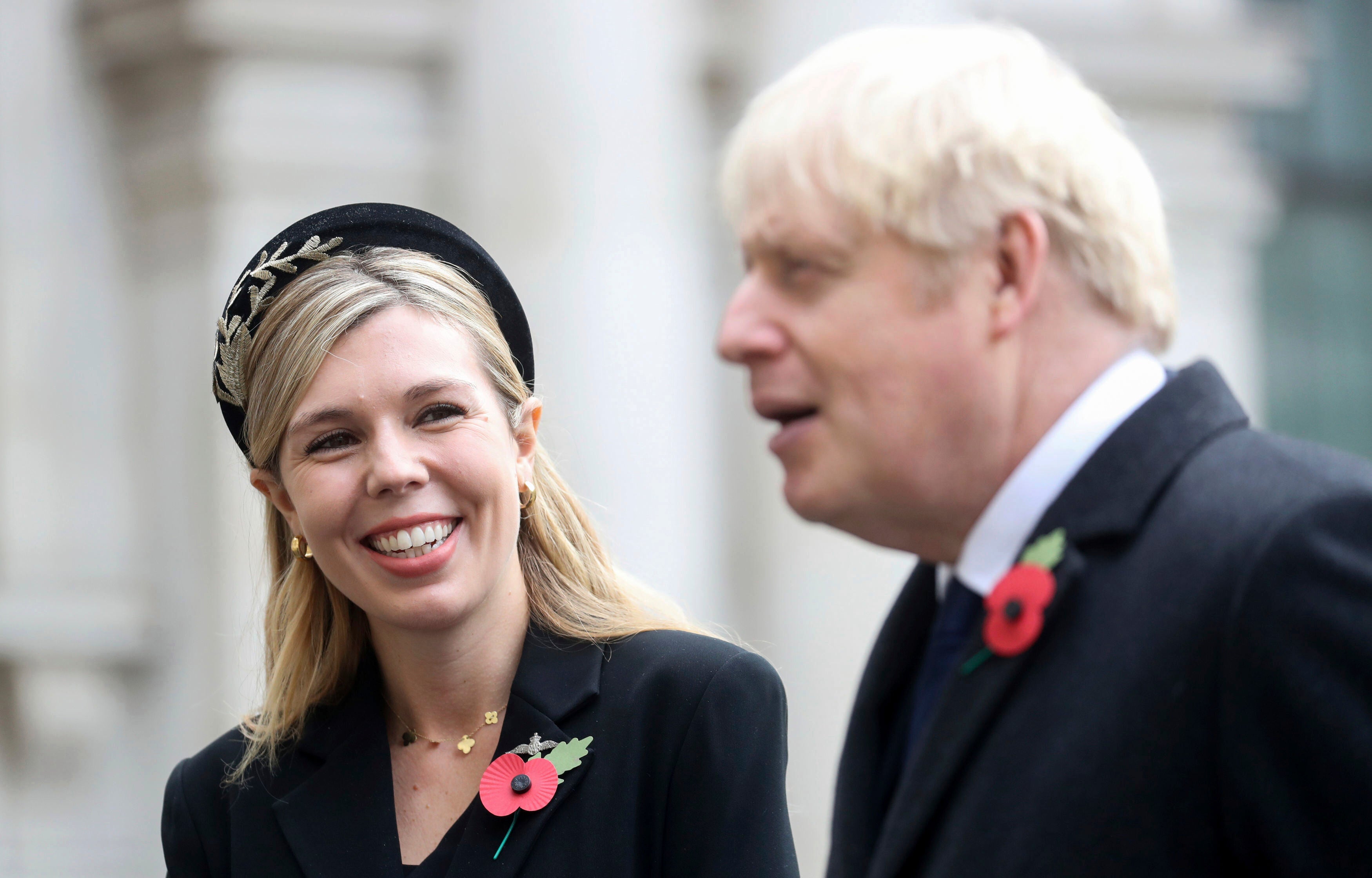Aide’s resignation raises questions about influence of prime minister’s fiancée Carrie Symonds
Women in Downing Street believed to have joined forces

One of the most surprising elements of the spiralling fracas which developed within 10 Downing Street over the future of communications director Lee Cain was the supposed role of the prime minister’s fiancée, Carrie Symonds.
Only hours after news broke that Boris Johnson was “poised” to offer Mr Cain promotion to the job of chief of staff, the first sign that the proposed move was not going smoothly emerged in the shape of a tweet from BBC political editor Laura Kuenssberg stating that Ms Symonds was “deeply unhappy” with the plan.
Later it emerged that Mr Johnson’s policy chief Munira Mirza and newly appointed political press secretary Allegra Stratton were also said to have misgivings about the promotion, as Downing Street appeared to divide down gender lines on the issue.
The prime minister’s official spokesman today said he “did not believe it was the case” that the Cain resignation had seen men and women within Mr Johnson’s entourage pitted against one another.
But one MP said the reported split reflected the political style of the Vote Leave “boys’ club” around Dominic Cummings, known for their abrasive demeanour and often unmasked disdain for those outside their clique.
Although a Brexit supporter, Ms Symonds was never part of the Vote Leave team and her role as Conservative Party head of communications under Theresa May in 2018 will have put her at loggerheads at times with the Eurosceptic ultras who made the former PM’s time in office so difficult.
Her political passions are for nature conservation and animal welfare, and aged just 32 she may feel more attuned with the younger generation of voters her partner will need to attract once the battles over Brexit and the EU trade deal are in the past.
Friends have suggested she opposed Mr Cain’s elevation because of the “uncollegiate” way in which he operated.
One Tory MP told The Independent that she may simply have been acting out of a professional concern for the party’s image after a series of presentational gaffes, mixed messages and U-turns.
“She was a director of communications for our party - she was a special adviser, it’s not as if she’s some innocent getting into waters she’s not experienced enough to swim in,” said the MP. “If she felt the PM was getting all his advice from one side and it wasn’t doing the party any good, she may have felt she had to say something.”
Ms Symonds may have made common cause with other women in Downing Street out of a similar assessment of the best way forward for the Johnson administration, rather than a simple battle of the sexes behind the famous black door. Ms Stratton’s arrival in Downing Street appears to have been the trigger for the crisis around Mr Cain’s position.
She is understood to have insisted on reporting directly to the prime minister, who poached her from chancellor Rishi Sunak after she successively boosted his profile as an adviser.
And her planned role as the high-profile host of No 10’s televised briefings, due to start within weeks after the conversion of a former Privy Council office in Downing Street into a soundproofed studio, threatened to undermine Mr Cain’s control of No 10’s communications.
Reports suggest that the pair have not spoken in the fortnight since her arrival, and one ex-minister was quoted as suggesting that the former television journalist would “eclipse” Mr Cain, whose best-known media job was dressing up as a chicken to chase politicians on the election trail for the Daily Mirror.
The director of communications’ resignation may be seen as a triumph for Ms Symonds, but it has also raised questions about her influence within her fiancé’s administration.
Previous prime ministerial spouses like Denis Thatcher and Philip May have been content to act as “rocks” quietly supporting their partner. Others, like Cherie Blair, had their every comment scrutinised for evidence of influence on the PM’s political thinking. None before has been suspected of playing a role in the appointment of senior figures at the heart of the government.
Subscribe to Independent Premium to bookmark this article
Want to bookmark your favourite articles and stories to read or reference later? Start your Independent Premium subscription today.

Join our commenting forum
Join thought-provoking conversations, follow other Independent readers and see their replies